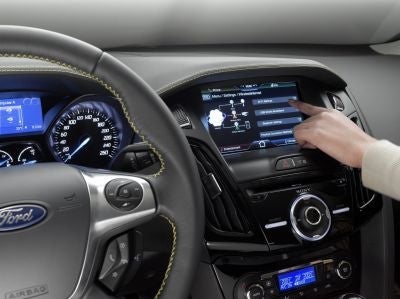Your support helps us to tell the story
From reproductive rights to climate change to Big Tech, The Independent is on the ground when the story is developing. Whether it's investigating the financials of Elon Musk's pro-Trump PAC or producing our latest documentary, 'The A Word', which shines a light on the American women fighting for reproductive rights, we know how important it is to parse out the facts from the messaging.
At such a critical moment in US history, we need reporters on the ground. Your donation allows us to keep sending journalists to speak to both sides of the story.
The Independent is trusted by Americans across the entire political spectrum. And unlike many other quality news outlets, we choose not to lock Americans out of our reporting and analysis with paywalls. We believe quality journalism should be available to everyone, paid for by those who can afford it.
Your support makes all the difference.Google has been detailing what's new in the world of its consumer electronics at this week's Google I/O conference (May 10-11 in San Francisco), but as has become the norm recently, an automaker was lurking in the wings.
Following other high-profile appearances this year at the CES in Las Vegas and CeBIT in Hannover, Ford was on hand to announce that it is using Google's Prediction API to make life easier for drivers.
Google Prediction allows software builders access to Google's powerful historic data analysis software, meaning they can deliver more accurate predictions of what will happen next.
Speaking at Google I/O, Ford developers revealed how they are using the tool to collect and use information collected by a vehicle over time to make cars and journeys faster and greener.
The example given was of a plug-in hybrid vehicle which could eventually "learn" that drivers getting into the car at the same time of the morning are likely to be headed to the same place - a workplace, for example, or a school.
Using a database of previous journeys and Google Prediction, the car could automatically guess where the driver is going, confirm it with them using speech, and then tune its performance accordingly.
For a plug-in hybrid, this might mean restricting the journey to electric-only operation (as it knows the length of the journey and how much power is required), or switching to electric power in low-emissions zones automatically.
Because of the computational power required for predictions, it has to be performed remotely, something Ford is very keen to do - although it says it's aware of the privacy implications.
"We realize that the nature of this research includes the use of personal data and location awareness, something we are committed to protecting for our customers in everything we do," said the firm's Johannes Kristinsson.
"A key component of this project is looking at how to develop secure personal profiles that will ensure appropriate levels of protection and specific data use only by the driver and the vehicle to deliver the best driving experience."
General Motors, meanwhile, announced this week a new tool which allows potential buyers of the company's first standalone telematics system, OnStar FMV, to see whether it fits their vehicle.
The tool, available at OnStar.com, provides an easy way to see whether the navigation and telematics product, which will be available in the US this summer at Best Buy stores for $299, is compatible with their brand of car.

Join our commenting forum
Join thought-provoking conversations, follow other Independent readers and see their replies
Comments